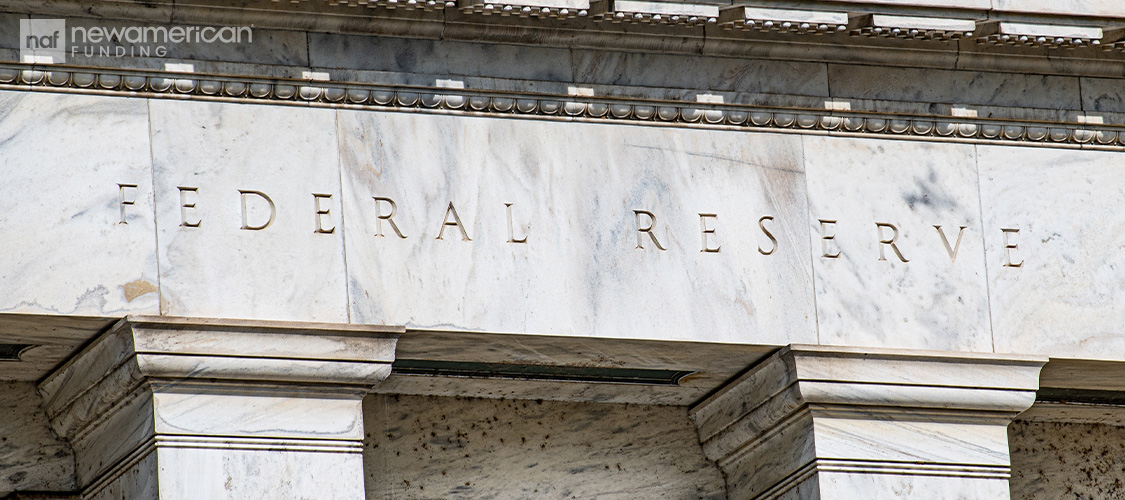Homebuyers
What’s Going on with Mortgage Rates? What Homebuyers and Homeowners Need to Know
April 25, 2025
Homebuyers and homeowners closely attuned to the rises and falls in mortgage rates may be getting whiplash.
Mortgage interest rates initially dropped in early April right after new tariffs were announced and the stock market fell. Rates averaged 6.6% on April 4, down from just over 6.8% in late March, according to Mortgage News Daily.
Then they shot back up again, briefly topping 7% before falling back down and then up again.
“This is one of those very rare situations,” said New American Funding Chief Investment Officer Jason Obradovich. “If you are shopping for rates, it’s very day-to-day. It could go higher and it could go lower.”
It’s enough to make the typical person’s head spin. So, why are rates all over the place?
That’s because mortgage rates are tied to the long-term bond market—and there has been a lot of volatility in the bond market since new tariffs were announced at the beginning of April.
“The uncertainty around tariffs really impacts investors and the perception of the U.S. dollar, which has dramatic effects on the bond market,” said Obradovich. “Any uncertainty in the bond market has an even greater impact on mortgage rates.”
Why does the bond market influence mortgage rates?
Let’s break it down: After a mortgage is made, lenders typically want to get it off their books so they can free up money to make new loans.
In most cases, they sell the loans to Fannie Mae or Freddie Mac, government-sponsored enterprises that back many U.S. mortgages. This frees up money that lenders can use to make new loans.
Fannie and Freddie then typically bundle these loans into mortgage-backed securities (aka mortgage bonds) that are bought by investors seeking steady returns.
Mortgage bonds and 10-Year U.S. Treasury bonds often appeal to investors looking for lower-risk investments. That’s why when the stock market is volatile, investors generally turn to these more stable, but less profitable investments.
When there is more demand for bonds, prices generally rise. That pushes mortgage rates down.
The typical pattern hasn’t held true lately though. The stock market has dropped, but the bond market is also volatile. Criticism of Federal Reserve Chairman Jerome Powell has made the markets uneasy as well. This is leading to investors selling bonds, instead of buying them.
“The degree of uncertainty of the return you would get on a mortgage-backed security is much higher,” said Obradovich. “That unfortunately means mortgage rates will rise higher.”
How does the Fed impact mortgage rates?

Many folks believe that if the U.S. Federal Reserve lowers interest rates, then mortgage rates will fall. And while mortgage rates generally follow the same trajectory as the Fed’s short-term interest rates, the two are not the same thing.
The Fed has jacked up interest rates to combat the post-pandemic inflation in the economy. This has helped get inflation back in line, although it is still running hotter than the Fed would prefer.
President Donald Trump has urged the Fed to cut rates.
The job market is also showing signs of softening. Typically, the Fed will lower rates when unemployment is rising to stimulate the economy and head off a recession.
However, the Fed wants to see if tariffs will lead to a resurgence in inflation. That’s why the Fed hasn’t rushed to slash rates, preferring a wait-and-see approach.
“The Fed has got to walk this tightrope,” said New York City-based appraiser Jonathan Miller of Miller Samuel. “They have to see if the volatility surrounding tariffs settles down.”
What does this mean for mortgage rates?
Those hoping that mortgage rates will drop, better buckle up. Mortgage rates are expected to be bumpy.
“Until we get certainty around the tariffs and trade and the degree to which it’s going to impact the economy, mortgage rates will remain elevated,” said Obradovich.
However, homebuyers waiting for mortgage rates to come down should remain hopeful. Once there is less volatility in the markets, rates could stabilize.
“It’s more likely than not that rates will be coming down from here,” said Obradovich. “But it’s still a very volatile situation.”






 Smart Moves Start Here.
Smart Moves Start Here.